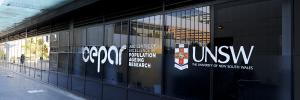In this Austaxpolicy article CEPAR Senior Research Fellow Dr George Kudrna and CEPAR Associate Investigator Professor Hans Fehr analyse how pension wealth and residential real estate interact with each other and to what extent they are impacted by national income tax and pension policies.
CEPAR Chief Investigator Professor Sharon Parker has been recognised as one of Australia’s top 40 lifetime achievers in research, chosen for the consistent excellence of their work and the impact they had in their fields, by The Australian’s 2021 Research Special Report.






